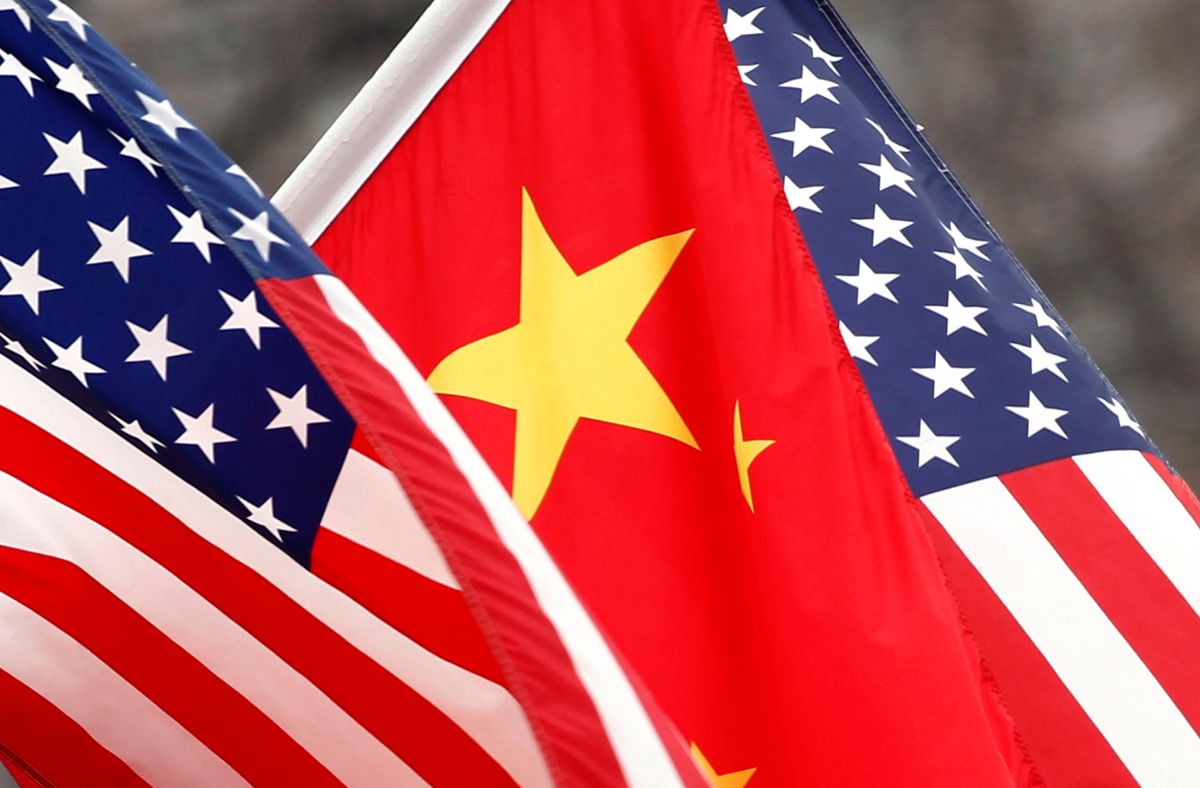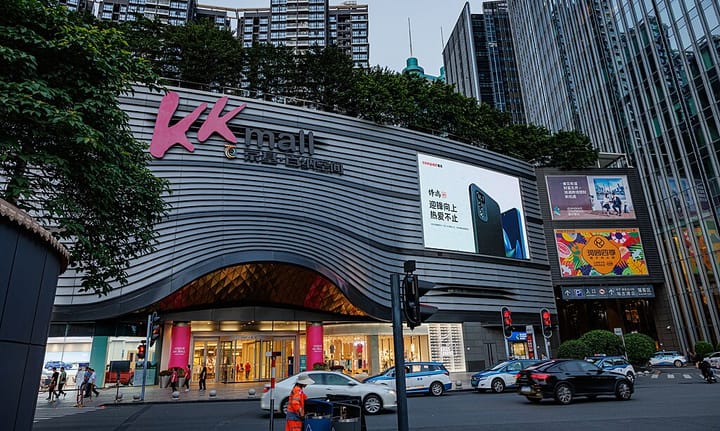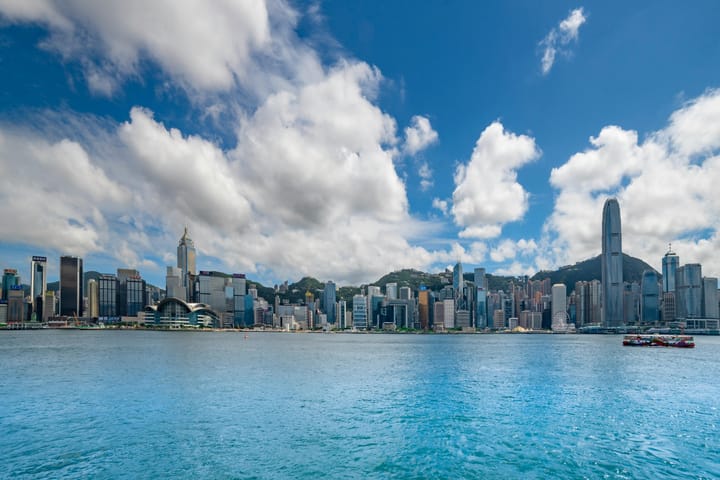Trump’s lame-duck presidency sees sanctions of Chinese companies continue

A few minutes every morning is all you need.
Stay up to date on the world's Headlines and Human Stories. It's fun, it's factual, it's fluff-free.
Trump is using the eleventh-hour of his presidency to ratchet up pressure against Chinese corporations before the Biden administration can assume control.
Despite a wave of desperate legal attempts to reverse the decision of a majority of voters in the United States, President Donald Trump has lost his bid for reelection, with President-elect Joe Biden and Vice President-elect Kamala Harris set to take over on January 20, 2021.
Despite this, Trump is using the eleventh-hour of his presidency to ratchet up pressure against Chinese corporations before the Biden administration can assume control.
In particular, the Trump administration has escalated sanctions on companies it claims has ties to the Chinese military and will adopt further sanctions on Chinese officials connected with Hong Kong’s national security law.
The measures have been unwelcome for many Chinese firms, who have already dealt with US sanctions for much of the past year. The latest round of sanctions on many state-linked firms prompted a round of bond sell-offs at a time when Chinese companies, even state-backed companies, are facing a bond default crisis.
However, more worryingly for the affected Chinese companies is that there is no assurance that these measures will be dropped the minute President-elect Joe Biden takes office.
With little over a month left as president, President Trump is using his executive powers to attack his rivals in China in much the same way as he has lashed out at rivals within his own administration.
Latest sanctions
Despite his dashed hopes of maintaining the presidency for another four years, President Trump has continued to heap pressure on Chinese companies.
In November, a Trump executive order prohibited US investments in Chinese companies that the US said were owned or controlled by the Chinese military.
The order designated some of China’s biggest companies, including China Telecom Corp Ltd., China Mobile Ltd., surveillance equipment maker Hikvision as well as smartphone and telecoms giant Huawei Technologies Co., Ltd. as possessing ties to China’s military.
In preventing US investors from owning or trading any securities that are exposed to these firms, White House trade adviser Peter Navarro said Trump’s order was “designed to choke off American capital to China’s militarization.”
Chinese officials and companies rejected the Trump administration’s claims.
A statement from Hikvision, one of the affected companies, stated that “as we have shown time and again, Hikvision is not a ‘Chinese military company’. Hikvision is independently operated and publicly traded.”
Chinese Ministry of Foreign Affairs spokesperson Wang Wenbin argued that “this move will not only seriously damage the legitimate interests of Chinese companies, but will also damage the interests of investors in various countries, including the United States.”
But the order is in itself largely symbolic, contributing most of all to the ongoing deterioration of relations between the US and China.
A report earlier in the year by regulators at the US Securities and Exchange Commission found that US mutual funds held about US$43.5 billion in Chinese stocks and bonds by April 2020. Total assets of US-based mutual funds worldwide stand at some US$21.29 trillion overall.
The Trump administration has not stopped there, however.
In December, President Trump blacklisted further companies, alleging that Semiconductor Manufacturing International Corporation (SMIC) and China National Offshore Oil Corp, among others, possess ties to China’s military.
SMIC is one of China’s largest chipmakers and central to the country’s strategy of decreasing its reliance upon US semiconductor technology.
Alongside this, the US has also adopted more sanctions on individuals connected to eroding Hong Kong’s autonomy. 14 members of China’s National People’s Congress have been targeted with asset-freezes and travel bans as a result of their connection to Hong Kong’s controversial national security law.
Chinese reaction
Despite Trump’s electoral defeat, Chinese companies have been forced to deal with another round of sanction pressure from the US government.
According to SCMP, Trump’s executive order caused “a panic sell-off in the stock markets of Hong Kong and mainland China, as investors liquidated their positions” so as to achieve compliance with Trump’s new rules.
Companies listed in Hong Kong bore the brunt of the sanctions, being more open to US investors than their mainland Chinese counterparts. Shares of China Telecom suffered their biggest decline in more than a decade, dropping by 7.8% in the immediate aftermath of Trump’s new sanctions.
The Chinese telecoms industry more broadly has been hurt by further sanctions. As China Telecom plunged, so did China Mobile and China Unicom, one of the world’s largest mobile service providers.
In the aftermath of Trump’s executive order, the index provider FTSE Russell also announced it would remove at least eight of the affected Chinese companies from its indexes. Their removal essentially confirms Trump’s order and the prevention of US investment.
But Dongshu Liu, associate professor of Chinese politics at the City University of Hong Kong, has argued that China will not respond in kind as it “is waiting for Trump to step down. It will avoid being too sensitive … to any of Trump’s actions towards China as his term winds down.”
While China may be simply planning to wait out the end of Trump’s term, there is no assurance that these sanctions or punitive actions against Chinese companies will be lifted in January.
Trump officials have made clear their intentions to use the period leading up to Biden’s inauguration to push through as many orders and policies as possible that President-elect Biden will find difficult to overturn.
John Ullyot, a spokesman for the National Security Council, stated in November that “future U.S. presidents will find it politically suicidal to reverse President Trump’s historic actions,” referring to his new rounds of sanctions and investment bans on Chinese companies.
President-elect Biden has already said he will not overturn several of Trump’s policies on China, including his Phase 1 trade deal between the two countries. Biden would likely also face growing bipartisan sentiment in the US that action should continue to be taken against China and Chinese corporations.
Trump’s latest sanctions may well be the outgoing president’s final attempts to punish China before his term is out.
But Chinese officials and companies may be wrong to think that the end of Trump’s term will signal a dramatic shift from present patterns.
President-elect Biden has also committed himself to being tough on China in conjunction with US allies. For now, Trump’s sanctions may become a regular fact of life for China’s biggest corporations.
Have a tip or story? Get in touch with our reporters at tips@themilsource.com




Comments ()